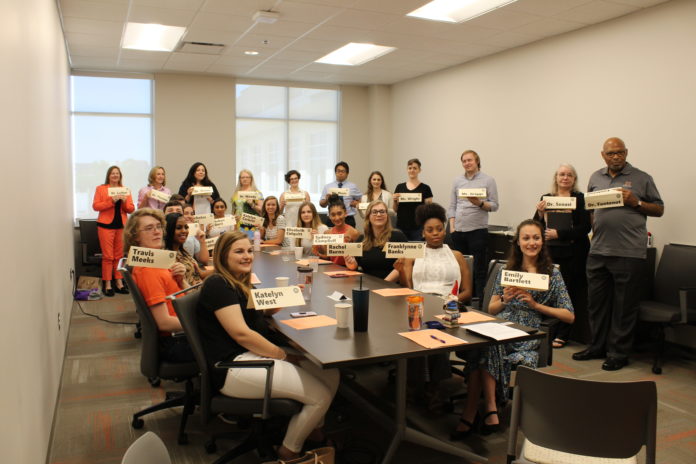A Mercer University program has been taking faculty research to the next level and showing students how service work can combine with research.
The University’s Quality Enhancement Plan/Research That Reaches Out Office began its 10-week Summer Student Research Program in 2016 but switched to an academic-year pilot for 2020-21 after the summer 2020 program was canceled due to COVID-19.
It’s a selective program, where faculty apply for the opportunity to participate, and those accepted nominate students to work with them.
Previously, the students worked 40-hour weeks from June to July with faculty members on their research initiatives, said Dr. Kathy Kloepper, vice provost of engaged learning and director of Research That Reaches Out. Students received stipends and free housing, providing a cohort experience as they lived together on campus.
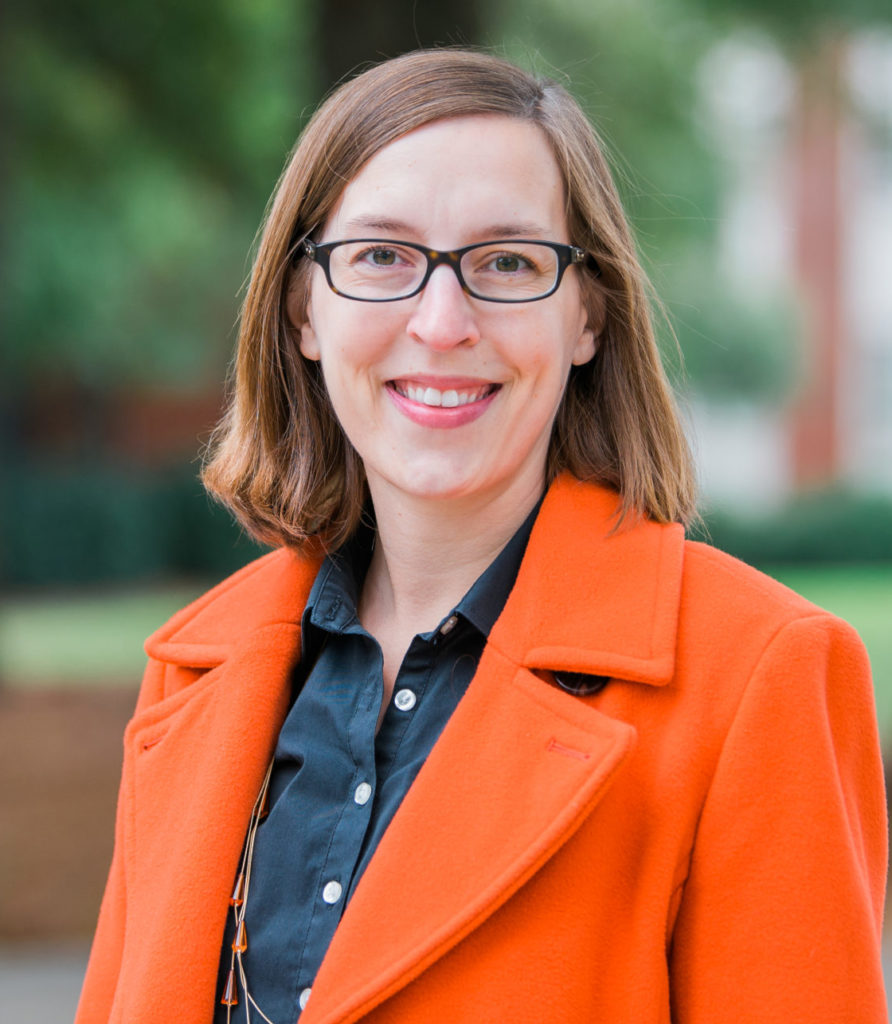
They participated in professional development activities on goal-setting, communication, keeping a budget, developing a poster and presenting research. In addition, they presented their posters at BEAR Day as well as regional and national conferences. In its four years as a summer program, 55 students and 37 faculty members participated.
“We want to support students in their goals, and this helps them see how they can integrate service and research,” Dr. Kloepper said. “The program also helps faculty with their goals of working with undergraduate researchers as well as helping further their own research agendas.”
As an academic-year pilot now, five undergraduate students are working six to 10 hours a week on two faculty-led projects and receiving course credit. They also meet regularly with Dr. Kloepper as a cohort to talk about their projects, obstacles, successes and professional development skills.
Dr. Kloepper said almost every discipline at Mercer has been represented through the Student Research Program, and projects supported in the past include digitization of records related to slavery in Middle Georgia; design of new 3D stents; data collection on finger push strength in older adults; and an initiative to improve writing instruction.
This year’s faculty-led projects are with Dr. Gabrielle Darville, assistant professor of public health, and Dr. Vicki Luther, associate professor of education.
“I think it’s great that they are involving students in their work because it’s such a significant learning opportunity for these students,” Dr. Kloepper said. “The students are applying their research training immediately. They have gone from learning about the theory of data collection to actually doing data analysis to reporting it to others in the field.”
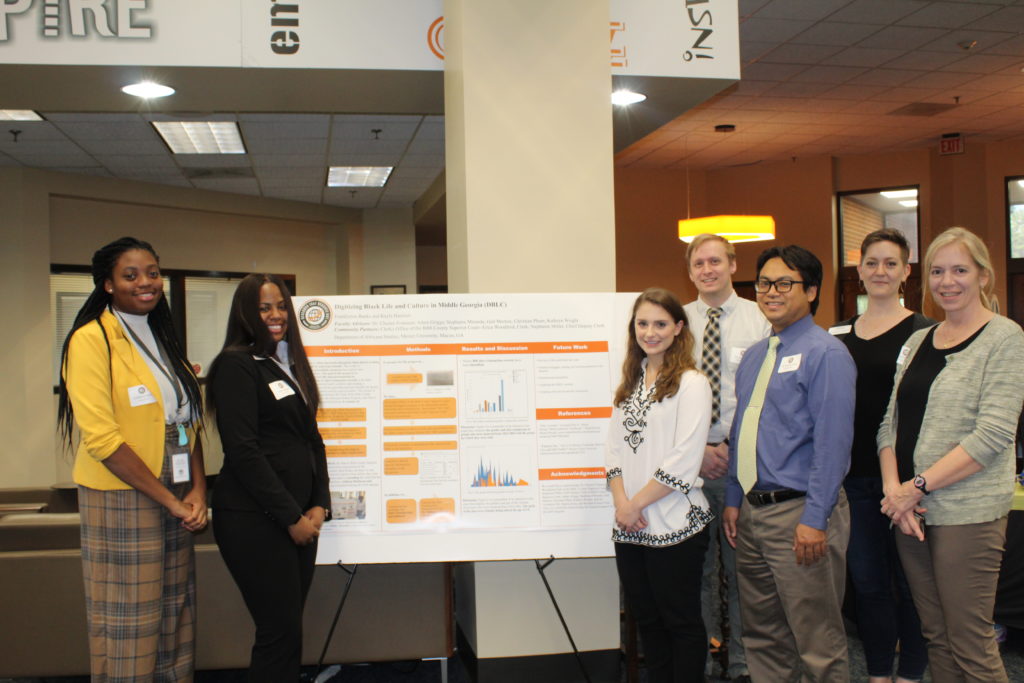
Stigma surrounding HPV vaccines
Dr. Darville’s current research project focuses on increasing HPV vaccination rates within the LGBTQ+ community. Vaccination rates are very low among this population, and the Mercer professor wanted to get a broad assessment of their experiences and what’s important to them to tailor the approach.
In 2018, she received a small grant from the Georgia Department of Public Health to determine the impact of a documentary highlighting female HPV survivors — titled Someone You Love: The HPV Epidemic — on HPV vaccination intentions among college students. She now has a Provost Seed Grant that is funding the current study with future goals of developing a documentary series/digital storytelling campaign. Ultimately, the hope is to bridge the knowledge gap and improve HPV vaccination rates, Dr. Darville said.
The first step of the project is data collection, which students Danielle Hawk, Fatima Alarcon and Zaira Khan are assisting with for the Student Research Program.
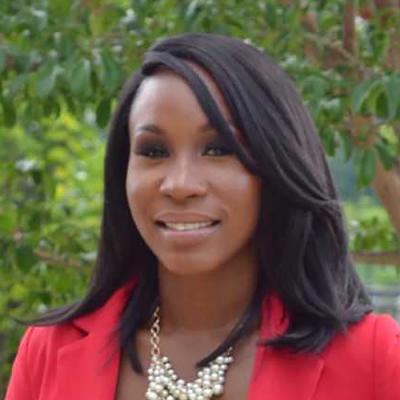
They performed background research, received Institutional Review Board research training, connected with partner organizations, found interview participants and helped develop interview questions. They conducted 47 Zoom interviews, lasting an hour to an hour-and-a-half each, and are now in the process of transcribing those interviews. The team also pre-recorded a presentation about their research that was recently broadcast during Xavier University’s Health Disparities Conference.
Alarcon, a junior public health and Spanish double-major, said this research experience has given her more insight into what she can do with a public health career.
Hawk, a junior music and public health double-major, said working with the LGBTQ+ community and hearing the interviewees’ experiences opened her eyes. She now has a better understanding of how to most effectively disseminate information to the public.
Khan, a senior public health major, said it’s important to understand how health care affects the LGBTQ+ population. Projects like this could help inform and change how doctors and medical providers respond to patients going forward.
“This project couldn’t have been done without these three students,” Dr. Darville said. “We established a good balance and flow. I’ve really been able to trust them. I’m very grateful for their willingness to volunteer their time.”
Tutor training on social-emotional learning
Students Alaicha Penamon and Marlee Nichelson are assisting Dr. Luther in expanding training for Mercer students who tutor kindergarten through third-grade students through the United Way’s Read 2 Succeed initiative.
“I thought this project would be a way for me to improve my public speaking through something that is special to me, which is education,” said Penamon, a senior early childhood/special education major who is student teaching at Skyview Elementary School in Macon. “I wanted to take initiative and do something out of the box but still in my comfort zone.”
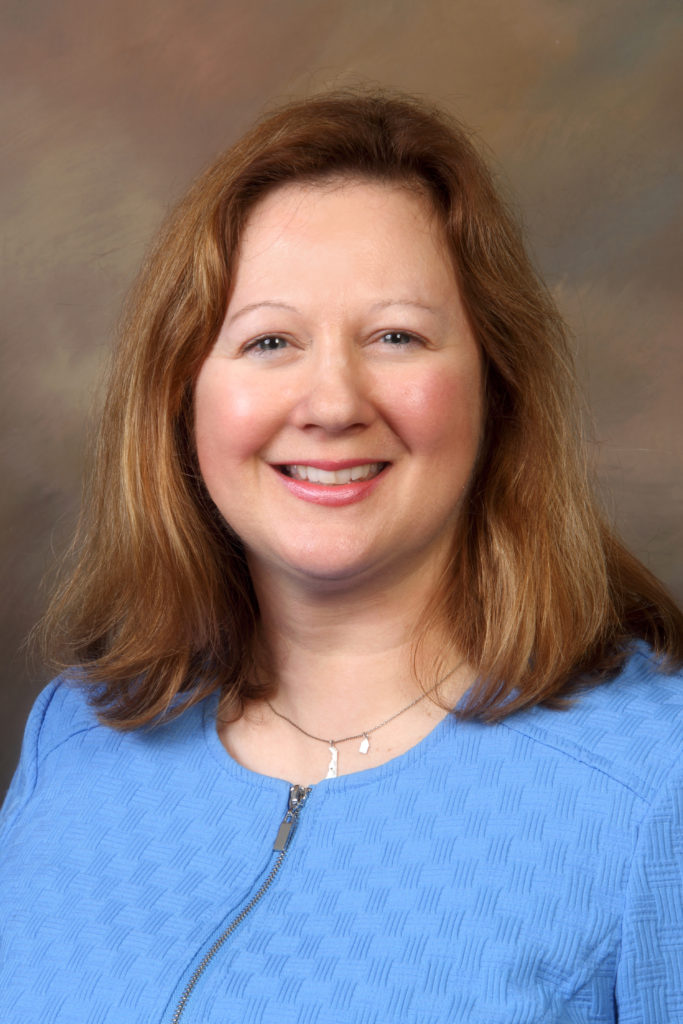
In 2019, Dr. Luther and two other undergraduate students collected materials and created an online tutor course. It focused on the academic elements of tutoring, and materials related to social and emotional learning in elementary students are now being added.
“There’s a correlation between a child’s social and emotional well-being and being able to learn. Just checking in with the students at the beginning can help increase their well-being,” Penamon said.
Dr. Luther wants to make sure Mercer students feel comfortable and confident during their tutoring sessions and have resources to enhance social-emotional learning. With children having to attend virtual school amid COVID-19, many will be playing catchup over the next few years. They may be dealing with frustration, trauma, sadness and confusion, so it’s important for tutors to get to know their mentees and signs they may be struggling.
“We’re looking for new ways to help the whole child and not just part of a child’s learning,” Dr. Luther said. “If you feel insecure as a second-grader or third-grader, if you feel that no one is there to help you, you’re not going to thrive. We see a lot of that, where students feel like no one cares.”
In the fall, the research team surveyed Mercer tutors to get their thoughts on how the tutoring program was going and suggestions for improvement, Penamon said. The results revealed this was the first time many of the Mercer students had tutored online and worked with children from impoverished environments, Dr. Luther said. Respondents also indicated they needed more time to build bonds with the children during the tutoring sessions, Penamon said.
This semester, the research team has been analyzing the results and gathering resources, videos, tips and activities that will soon be added to the course. The students also presented their research virtually during the 2021 Gulf South Summit and BEAR Day.
“This is a work in progress. It’s a continuation of improving and enhancing how we can help these children in the community,” Dr. Luther said. “The goal is to meet the students where they are, support them academically, socially and emotionally and keep adding to this online course.”

